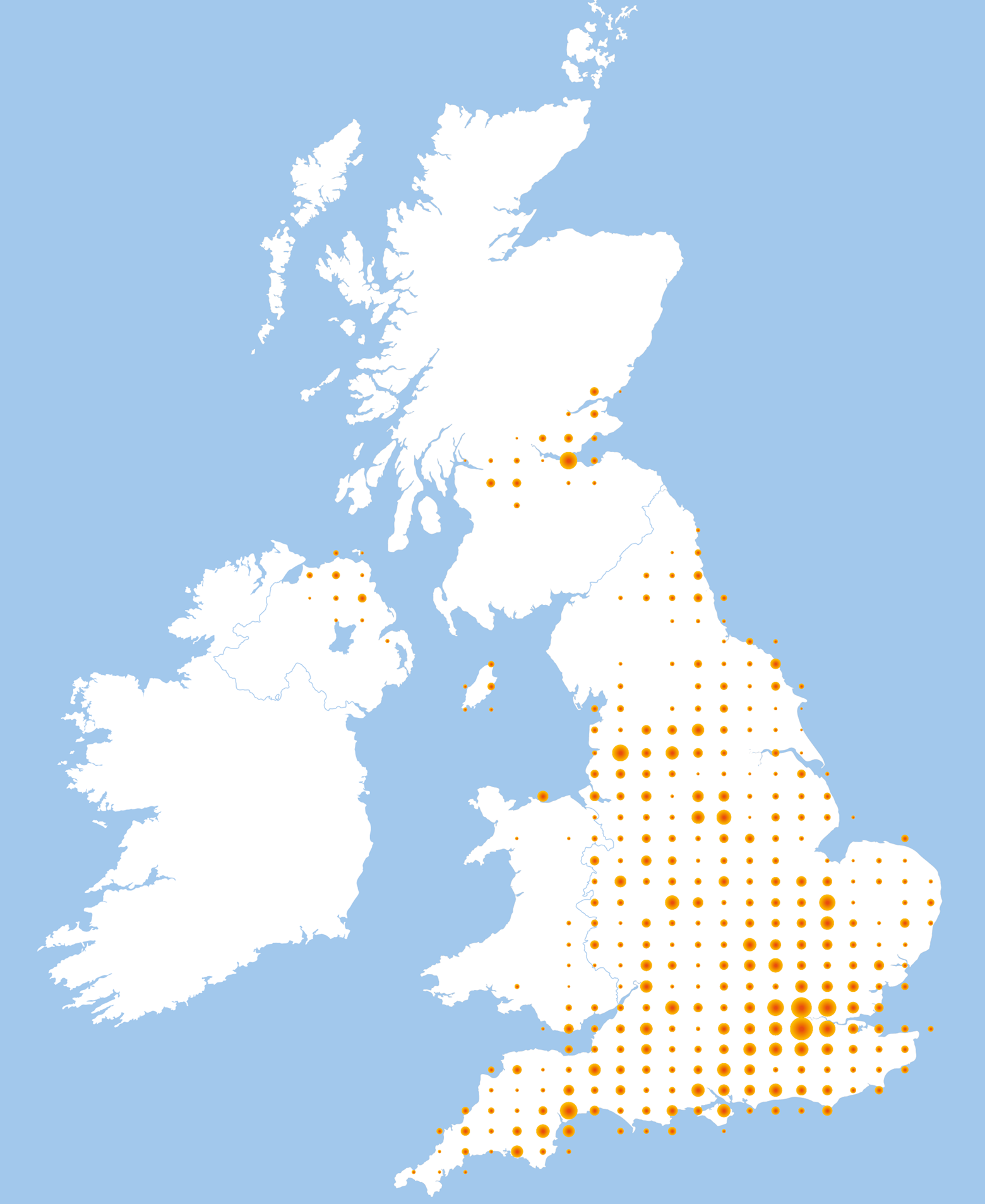

Improving social care through digital care planning
An evaluation of the PASSsystem led by the Social Care Institute for Excellence
Download Executive Summary and Full Evaluation Here
Click here to download the executive summary or here to download the full report as PDF files.
Introduction and methodology
everyLIFE Technologies is a Software as a Service (SaaS) company, founded in 2014, which provides digital care management software and systems across health and social care. everyLIFE’s technological solutions help care providers to manage risk and increase efficiency in their business operations, thereby improving the quality of care. The PASSsystem, a digital care management platform, is everyLIFE’s premier product and has been adopted by approximately 700 care providers across the UK.
An evaluation of the PASSsystem was commissioned in 2017. The evaluation was conducted by members of the everyLIFE team, with direction and supervision from SCIE and York Consulting, and was conducted in two parts. Part 1 was completed between May 2018 and February 2019. Part 2 will be reported in early 2020.
Evaluation methodology
- Surveys to gather feedback from care managers, care workers and business owners
- Interviews with care managers, business owners, care workers and a commissioner of adult social care
- Literature review
- Economic Assessment
In total, 57 care managers and 95 care workers provided feedback through interviews and/or surveys, both of which form the basis of this evaluation’s findings. The literature search did not find any other published work of this type. Therefore, this report is the first evaluation in building an evidence base around effective use of technology in social care.
Aim
The aim of the evaluation was to assess the extent to which the PASSsystem is helping social care providers to demonstrate and deliver safe, efficient, high quality care, and accountability. Five key evaluation questions were formulated to achieve this aim.
Evaluation Part 1 – Key findings
- Care providers can better manage risk by using the PASSsystem
- Care providers can realise business efficiencies by using the PASSsystem
- The PASSsystem helps care providers to deliver high quality care
- The PASSsystem enables care providers to demonstrate accountability to services users, families and regulators
Evaluation questions
Part 1:
- How and to what extent does the PASSsystem help to reduce the risk of: (a) avoidable harm to service users? (b) compliance actions from regulators?
- How and to what extent does the PASSsystem improve efficiency in the delivery of care?
- How and to what extent does the PASSsystem enable improvements to the quality of care?
- How and to what extent does the PASSsystem improve accountability in care businesses?
Part 2:
- How and to what extent does the PASSsystem help to create financial savings to the State? (See p.8)
In Part 1 of the project, participants – including care managers, care business owners and care workers – reported benefits of the PASSsystem across each of the four questions in Part 1 of the evaluation. Part 2 of the project will be reported in early 2020.
Risk management
The PASSsystem was considered to help reduce and manage risk for all participants.
Care managers reported benefits in terms of:
- Information security – Felt confident that the PASSsystem held service user information securely.
- Responsiveness of care – Suggested that the PASSsystem enabled them to monitor and respond to service user needs more quickly, particularly noting the alert system as an effective tool.
- Reducing mistakes – Both care managers and business owners reported that the PASSsystem had reduced medication errors, attributing this to the better quality of digital care record notes, eliminating the risks of avoidable harm associated with paper-based care records and delayed detection of errors.
- Regulatory compliance – Reported that the PASSsystem helps improve regulatory compliance, offers standardisation across the business and the ability to evidence care delivery, and has a real-time auditable trail of activity.
Care workers reported benefits in terms of:
- Keeping track of care interventions and other tasks – Found it helpful that the system prompted them to complete all care interventions and other tasks for service users.
- Information security – Reported that the PASSsystem was considered more effective than paper in keeping personal care records secure.
- Information sharing – Reported that the PASSsystem supported accurate information sharing with their colleagues and managers and helped improve communication.
Efficiency
The PASSsystem was considered to improve efficiency in the delivery of care. In particular, the PASSsystem was thought to help with:
- Better preparation prior to delivering care – For care workers and care managers, having access to service user information supported delivering better care and enabled greater organisation to optimise time with the service user.
- Cost savings associated with a paperless system – All commented positively on operating a paperless system which they reported saved time as well as costs associated with printing and photocopier machine hire. Business owners indicated that care plans were implemented more quickly after an assessment has been conducted.
- Supporting communication across health and social care workforce – There was recognition that the PASSsystem improves visibility for other professionals. However, this improvement varied due to digital maturity across health and social care.
Although care managers and care workers reported being able to work in a more organised and efficient way, not all gained time was spent in direct care provision.

Figure 1 – Care manager survey respondents by job role
Quality of care
Participants reported that the PASSsystem enabled improvements to the quality of care delivered to service users by:
- Assisting with preparation – Understanding the needs of service users by accessing accurate care records ahead of care interventions.
- Promoting service user and family involvement – Particularly having a family version of the app – openPASS – in which families can see what care is being given and are able to contribute to the care planning for their loved ones.
- Promoting improved continuity of care – The ability to have an accessible care record for everyone involved in the care.
Care managers suggested they were able to monitor staff more effectively, indicating that they felt confident in the quality of care that had been delivered, particularly supporting care workers to adopt a person-centred, outcome-based approach.
Some care workers suggested that the PASSsystem had a lower impact in enabling service users to be directly involved in their own care. Some care workers also reported no impact to job satisfaction.

Figure 2 – Care worker survey respondents by job role
Accountability
The PASSsystem was considered to improve overall accountability in care businesses. Family involvement was explored as an area of strength for the PASSsystem across all participants indicating that the PASSsystem promoted openness and transparency between staff delivering care, service users and their families. Care workers and care managers suggested that the PASSsystem made it easier to keep accurate records in the care they deliver to service users.
Care managers and business owners suggested that this was particularly true in relation to:
- Supporting regulatory compliance – In relation to medication management, proactive preparation for inspections and auditing and evidencing the care given.
- Better integration with families – Using the PASSsystem helped to promote transparency and enabling involvement of family members / carers.
Care workers reported benefits across all the survey areas in relation to accountability with high numbers agreeing that benefits included:
- Involving service users in their care – Were able to show service users what they are doing and involve them in their care more.
- Demonstrating care standards – Felt they were able to demonstrate to their employer and families that they had delivered the care to the expected standards.
- Promoting openness between people delivering care and service users – Felt there was greater openness between people delivering care and servicer users and families due to the visibility that the PASSsystem enabled.
Economic assessment – Baseline data
As part of this evaluation, a method has been developed to assess the use of other services (for example, ambulance callouts, GP visits) by service users. The use of services will be recorded and assigned a financial value. This system will be used to compare costs to the State before and after engaging with a care provider using the PASSsystem. The first results of the impact of the PASSsystem on costs to the State will be reported in early 2020.

Figure 3 – Heat Map showing where the PASSsystem is used across the UK
Suggested areas for improvement
Suggested areas for continued improvement to the PASSsystem based on participant feedback were as follows:
Care workers and care managers who did offer insight into areas of improvement to the PASSsystem spoke about this in the context of system performance and functionality. Some care workers reported experiencing issues with logging into the system, or slowness on occasion during the feedback window between October and December 2018. In some instances, it was reported that users found the PASSsystem frustrating if they were timed-out of the system and suggested a longer time-out window. At the time of completing this evaluation, works to address logging in and time-out period had been completed and improvements deployed.
In terms of functionality, there was some feedback relating to the presentation of observation data and to exploring fingerprint scanning as a login option. For the care managers who gave feedback on areas of improvement, the majority commented on the reporting functionality of the PASSsystem, with many observing that the current reporting capability needed to be extended. Work to improve reporting capability has been completed and the ‘Insights Dashboard’ improvements already deployed.
The PASSsystem could be improved by having more outcome templates and the ability to pre-populate data fields as this would help speed up the process of formulating care plans with relevant ones being included. It was suggested that body maps could be improved by being interactive and available for use across all care intervention as required. Work to address both of these points is underway.
Recommendations and conclusions
everyLIFE Technologies has committed to implementing the recommendations highlighted in the evaluation.
Recommendations
- everyLIFE should continue to evaluate and contribute to the knowledge base of digital solutions across social care.
- The everyLIFE Senior Management Team should consider how to build on the knowledge gained from the evaluation to align future developments with digital priorities in social care. Future work should include the views of people receiving care and their families.
- The everyLIFE Senior Management Team should consider how the learnings from this process can be shared across the business to inform future customer engagement.
- Where the PASSsystem integrates with another solution, both parties should ensure that the integration is optimised. This has wider implications for interoperability across the health and care sector as more technology is deployed by care providers.
Conclusions
This evaluation has demonstrated a well-planned digital solution that continues to be refined and developed. We found evidence of early successes where the digital solution elements are performing effectively, as well as some further areas for improvement for everyLIFE to consider. This evaluation has provided evidence from business owners, care managers and care workers that the PASSsystem – a digital care management platform – has benefits in terms of managing risk, efficiency, accountability and quality of care.
The evaluation has established a range of tangible benefits in terms of supporting care managers and workers and enabling them to provide high quality care to people who use services and their families in a caring, transparent and accountable way.
